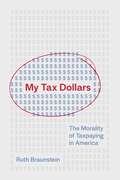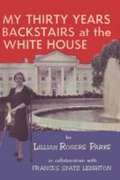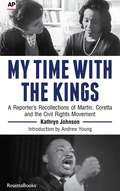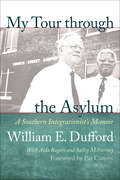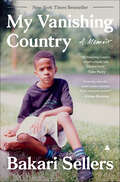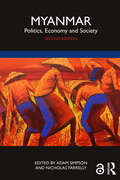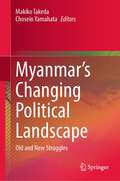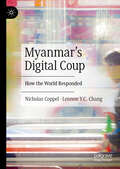- Table View
- List View
My Tax Dollars: The Morality of Taxpaying in America
by Ruth BraunsteinWhen the mundane reality of paying taxes takes on moral significanceIn My Tax Dollars, Ruth Braunstein maps the contested moral landscape in which Americans experience and make sense of the tax system. Braunstein tells the stories of Americans who view taxpaying as more than a mundane chore: antigovernment tax defiers who challenge the legitimacy of the tax system, antiwar activists who resist the use of their taxes to fund war, antiabortion activists against &“taxpayer funded abortions,&” and a diverse group of people who promote taxpaying as a moral good.Though taxpaying is often portrayed as dull and technical, exposure to collective rituals, civic education, propaganda, and protest transforms the practice for many Americans into either a sacred rite of citizenship or a profane threat to what they hold dear. These sacred and profane meanings can apply to the act of taxpaying itself or to the specific uses of tax dollars. Despite intense disagreement about these meanings, politically diverse Americans engaged in both taxpaying and tax resistance valorize the individual taxpayer and &“my tax dollars.&”Braunstein explores the profound implications of this meaning making for tax consent, the legitimacy of the tax system, and citizens&’ broader understandings of their political relationships. Going beyond the usual focus on tax policy, Braunstein&’s innovative view of taxation through the lens of cultural sociology shows how citizens in value-diverse societies coalesce around shared visions of the sacred and fears of the profane.
My Ten Years as a Counterspy
by Boris Morros Charles SamuelsBoris Morros was a successful Hollywood producer and a highly regarded musician and impresario. His life had been a legendary success story even in the flamboyant annals of show business. What chain of events in 1936 led him into serving the interests of a Soviet spy ring? What even more dramatic events brought him into the office of the FBI in 1947 to take on the role of a United States counterspy? How did Morros manage to deceive Communist agents and help provide the evidence which resulted, in the exposure and conviction of the, leaders of the spy ring? This book, for the first time, unfolds the entire drama of the ten-year ordeal of Boris Morros.
My Thirty Years Backstairs at the White House
by Lillian Rogers Parks Frances Spatz LeightonThis book should be required reading for every serious student of American history. The authors were eye witnesses to some of the great events of history and offer different perspectives from that found elsewhere. The unique perspective offered by this book arises from the fact that the authors are two White House domestic servants, each of whom worked for 30 years in the White House. As there was an overlap of ten years that both of them worked there together, that means that they were in the White House for a 51-year span from the end of 1909 until 1960, when Lillian Rogers Parks retired at age 64 in the concluding days of the Eisenhower Administration.
My Time with the Kings: A Reporter’s Recollections of Martin, Coretta and the Civil Rights Movement
by Andrew Young Kathryn Johnson“Let Kathryn in,” said Coretta Scott King to authorities.Three simple words that provided Kathryn Johnson, a reporter for The Associated Press’s Atlanta bureau, unprecedented access to the grieving widow in the days following her husband’s death.Johnson was on her way to a movie date when word came from Memphis that Martin Luther King Jr. had been assassinated. She immediately headed for the King home where, despite resistance from authorities on the scene, she was the only reporter allowed inside. Johnson’s many years covering King and his family had earned her the trust to be a discreet, observant witness to the aftermath of a defining moment in American history.Kathryn Johnson covered the civil rights movement across the South in the 1960s, often risking her own safety to observe first-hand the events of this great era. Her stories took her from witnessing the integration of the University of Georgia by dressing as a student, to hiding unobserved under a table near an infamous schoolhouse door in Alabama, to marching with the massive crowd from Selma to Montgomery.Johnson, one of the only female reporters on the scene, threw herself into charged situations with a determination to break the news no matter what. Including never-before-published photos, her personal account of this period is a singular addition to the story of the civil rights movement.
My Tour through the Asylum: A Southern Integrationist's Memoir
by Aïda Rogers William E. Dufford Salley McInerney“[A] testament to his journey toward South Carolina’s—not only desegregation of schools—but full integration and voice for African American students.” —Libby Bernardin, author of Stones Ripe for SowingImmortalized in the writings of his most famous student, bestselling author Pat Conroy, veteran education administrator William E. Dufford has led an inspirational life as a stalwart champion for social justice and equal access for all to the empowerment of a good public education. A quintessential Southern storyteller now in his nineties, Dufford reflects on his own transformation through education, from his upbringing in the segregationist Jim Crow Era-South of the 1930s and 1940s to becoming an accomplished integrationist revered by his pantheon of former colleagues and students. In My Tour through the Asylum, several of these supporters share their own candid recollections of Dufford alongside his life story, adding context and anecdotes to the narrative.Dufford credits the evolution of his mindset from segregationist to integrationist to the good influence of two experiences: his service in the US Navy in the 1940s opening his eyes to a larger worldview and his later doctoral training at the University of Florida under nationally recognized professors introducing him to global perspectives of education.Drawing the book title and themes from nineteenth-century statesman James Louis Petigru’s infamous assessment that South Carolina was “too small to be a republic and too big to be an insane asylum,” Dufford offers an insightful, pragmatic, and ultimately hopeful tour through his lived experiences in the courageous, committed service of education and enlightenment.“William Dufford’s memoir is a remarkable example of courage, passion, and determination.” —Peggy B. Winder, Newberry College
My Travels with Mrs. Kennedy
by Clint Hill Lisa McCubbin HillNEW YORK TIMES BESTSELLER The #1 New York Times bestselling authors of Mrs. Kennedy and Me reveal never-before-told stories of Secret Service Agent Clint Hill&’s travels with Jacqueline Kennedy through Europe, Asia, and South America. Featuring more than two hundred rare and never-before-published photographs.While preparing to sell his home in Alexandria, Virginia, retired Secret Service agent Clint Hill uncovers an old steamer trunk in the garage, triggering a floodgate of memories. As he and Lisa McCubbin, his coauthor on three previous books, pry it open for the first time in fifty years, they find forgotten photos, handwritten notes, personal gifts, and treasured mementos from the trips on which Hill accompanied First Lady Jacqueline Kennedy as her Secret Service agent—trips that took them from Paris to London, through India, Pakistan, Greece, Morocco, Mexico, South America, and &“three glorious weeks on the Amalfi Coast.&” During these journeys, Jacqueline Kennedy became one of her husband&’s—and America&’s—greatest assets; in Hill&’s words and the opinion of many others, &“one of the best ambassadors the United States has ever had.&” As each newfound treasure sparks long-suppressed memories, Hill provides new insight into the intensely private woman he always called &“Mrs. Kennedy&” and who always called him &“Mr. Hill.&” For the first time, he reveals the depth of the relationship that developed between them as they traveled around the globe. Now ninety years old, Hill recounts the tender moments, the private laughs, the wild adventures, and the deep affection he shared with one of the world&’s most beautiful and iconic women—and these memories are brought vividly to life alongside more than two hundred rare photographs, many of them previously unpublished. In addition to the humorous stories and intimate moments, Hill reveals startling details about how traveling helped them both heal during the excruciating weeks and months following the assassination of President John F. Kennedy in November 1963. He also writes of the year he spent protecting Mrs. Kennedy after the assassination, a time in his life he has always been reluctant to speak about. My Travels with Mrs. Kennedy unveils a personal side of history that has never been told before and takes the reader on a breathtaking journey, experiencing what it was like for Clint Hill to travel with Jacqueline Kennedy as the entire world was falling in love with her.
My Turn at the Bully Pulpit: Straigh Talk About the Things That Drive Me Nuts
by Greta Van Susteren Elaine LaffertyWelcome to the bully pulpit where opinions fly but common sense rules. Here’s where you’ll find straight talk about the most pressing issues of the day, all delivered in the trademark commonsense style of one of America’s most popular and admired television news anchors. Always resisting the political label that attempts to place people in one ideological camp or another, Greta Van Susteren speaks from the mind and the heart, not as a liberal or a conservative, but as a right-thinking, sensible citizen. “Our country is at a critical juncture,” she writes, and “too many of us are caught up in old definitions of left and right that no longer apply. If I favor the death penalty in some cases, does that make me right-wing? If I think hate crimes legislation is stupid, does that make me a conservative? If I happen to like and enjoy Ozzy Osbourne and have him on my show, does that make me a liberal? And if I believe that corporations should be held accountable if their products harm citizens and they should be subject to the rulings of a jury—ditto for doctors who commit medical malpractice—does that make me a lefty trial lawyer?”Here’s more of Greta in her own words:On the military: Liberty isn’t free. As a nation, we must provide for the men and women who put their lives on the line for us. That means good pay, adequate funding for defense, and our heartfelt support. Vietnam was a very long time ago. We Baby Boomers have to wake up and realize that today’s military is a different military from the one we grew up with, and we are fighting a very different war. Patriotism is not a conservative or a liberal thing. Patriotism, as far as I am concerned, is the duty and obligation of every American.On the Supreme Court: There should be a litmus test for Supreme Court and federal court judges, and that test should be their opinion about allowing public access to court proceedings. Let cameras inside the courthouse, or at least allow an audio feed to radio. What are they hiding?On the death penalty: It should be legal and available to courts and juries . . . but it should be used extremely rarely, and only when we are absolutely certain that a fair trial has taken place.On how you look: It’s your business and nobody else’s. Your looks and your life are not a democracy—not everybody gets a vote. Make your appearance and your choices a totalitarian regime—you are the boss.On fun: It isn’t a curse word. It’s actually quite serious business, as it makes the hard times livable and the sad times bearable. Fun should be part of a work environment, too. Stuffed shirts and snobs who can’t stop and laugh at themselves should be banished!In Greta’s company you’re guaranteed to get a fresh dose of common sense and a good hearty rant on many of the most important issues we face today. One more guarantee: you’ll have some good fun while you’re at it.
My Turn: Hillary Clinton Targets the Presidency
by Doug Henwood"I REPRESENTED WALL STREET, AS A SENATOR FROM NEW YORK." --Hillary Clinton, October 2015, during the first Democratic TV debate HILLARY CLINTON is running for the presidency with a message of hope and change. But, as Doug Henwood makes clear in this concise, devastating indictment, little trust can be placed in her campaign promises. Rigorously reviewing her record, Henwood shows how Clinton's positions on key issues have always blown with the breeze of expediency, though generally around an axis of moralism and hawkishness. Without a meaningful program other than a broad fealty to the status quo, Henwood suggests, "the case for Hillary boils down to little more than her alleged inevitability." DOUG HENWOOD is a journalist and financial analyst, who publishes two newsletters, Left Business Observer and (together with Philipa Dunne) The Liscio Report. He is a contributing editor at The Nation and the author of three previous books: The State of the USA Atlas, Wall Street and After the New Economy.
My Turn: Hillary Clinton Targets the Presidency
by Doug HenwoodHillary Clinton is running for the presidency with a message of hope and change. But, as Doug Henwood makes clear in this concise, devastating indictment, little trust can be placed in her campaign promises. Rigorously reviewing her record, Henwood shows how Clinton's positions on key issues have always blown with the breeze of expediency, though generally around an axis of moralism and hawkishness. Without a meaningful program other than a broad fealty to the status quo, Henwood suggests, "the case for Hillary boils down to this: she has experience, she's a woman, and it's her turn."From the Trade Paperback edition.
My Two Italies
by Joseph LuzziThe child of Italian immigrants and an award-winning scholar of Italian literature, Joseph Luzzi straddles these two perspectives in My Two Italies to link his family's dramatic story to Italy's north-south divide, its quest for a unifying language, and its passion for art, food, and family. <P><P>From his Calabrian father's time as a military internee in Nazi Germany—where he had a love affair with a local Bavarian woman—to his adventures amid the Renaissance splendor of Florence, Luzzi creates a deeply personal portrait of Italy that leaps past facile clichés about Mafia madness and Tuscan sun therapy. He delves instead into why Italian Americans have such a complicated relationship with the "old country," and how Italy produces some of the world's most astonishing art while suffering from corruption, political fragmentation, and an enfeebled civil society. <P><P>With topics ranging from the pervasive force of Dante's poetry to the meteoric rise of Silvio Berlusconi, Luzzi presents the Italians in all their glory and squalor, relating the problems that plague Italy today to the country's ancient roots. He shares how his "two Italies"—the earthy southern Italian world of his immigrant childhood and the refined northern Italian realm of his professional life—join and clash in unexpected ways that continue to enchant the many millions who are either connected to Italy by ancestry or bound to it by love.
My Ukraine
by Chrystia FreelandSince the breakup of the Soviet Union in 1991, former Soviet republic Ukraine has struggled against its "giant neighbor to the north"--Russia-- to maintain its sovereignty. In early 2014 tensions turned to conflict as Vladimir Putin, determined to keep Ukraine from forging stronger ties with the West, seized Crimea and fomented conflict in eastern Ukraine. In the latest Brookings essay, Chrystia Freeland, a former Ukrainian-based reporter with strong family ties to the country, offers a personal reflection on the conflict and the sentiment of the Ukrainian people. She highlights the fact that despite historic, cultural, and linguistic ties between the two countries, Ukrainians stand defiant in their desire for independence.
My Ukraine
by Chrystia FreelandSince the breakup of the Soviet Union in 1991, former Soviet republic Ukraine has struggled against its "giant neighbor to the north"-Russia- to maintain its sovereignty. In early 2014 tensions turned to conflict as Vladimir Putin, determined to keep Ukraine from forging stronger ties with the West, seized Crimea and fomented conflict in eastern Ukraine. In the latest Brookings essay, Chrystia Freeland, a former Ukrainian-based reporter with strong family ties to the country, offers a personal reflection on the conflict and the sentiment of the Ukrainian people. She highlights the fact that despite historic, cultural, and linguistic ties between the two countries, Ukrainians stand defiant in their desire for independence.
My Vanishing Country \ Mi país se desvanece (Spanish edition): Memorias
by Bakari SellersEn estas memorias, el analista político y representante de estado más joven de Carolina del Sur ahonda sobre las vidas del olvidado sur negro. «Soy del llamado País Bajo de Carolina del Sur, donde se entrelazan la belleza, la historia y la desgracia. Basta conducir cincuenta millas en cualquier dirección para hallarse en los mismos campos donde los esclavos —algunos de ellos, ancestros no tan lejanos— sudaban sobre el algodón, el índigo, la caña de azúcar, el arroz, el trigo y la soja. Específicamente, soy de Dinamarca, Carolina del Sur, un lugar donde todo el mundo conocía mi apellido; un apellido, según descubrí en mi infancia, teñido por el honor y la infamia».En cada capítulo, Bakari Sellers nos permite presenciar las vidas y luchas cotidianas de la población afroamericana rural del sur de los Estados Unidos a través de tanto sus vivencias como anécdotas históricas y políticas.Mi país se desvanece es un recorrido nostálgico, conmovedor y sincero sobre los acontecimientos e injusticas que marcaron a generaciones de hombres y mujeres negras, incluida la familia Sellers, hasta hoy día. Con estas memorias, Sellers adopta una nueva vía de lucha por los derechos civiles afroamericanos.Bakari Sellers es analista político en CNN y el miembro más joven en toda la historia de la legislatura estatal de Carolina del Sur. Incluido en la lista de «Los 40 de menos de 40» de la revista Time en 2010, también es abogado que lucha por dar voz a los que no la tienen.
My Vanishing Country: A Memoir
by Bakari SellersNew York Times Bestseller: This insightful and deeply personal portrait of African American working-class life “offers something so authentic . . . compelling” (Charleston Post and Courier).Part memoir, part historical and cultural analysis, My Vanishing Country is an eye-opening journey through the South’s past, present, and future.Anchored in Bakari Sellers’ hometown of Denmark, South Carolina, My Vanishing Country illuminates the pride and pain that continues to fertilize the soil of one of the poorest states in the nation. He traces his father’s rise to become a friend of Stokely Carmichael and Martin Luther King, civil rights hero, and member of the Student Non-Violent Coordinating Committee (SNCC), in the process exploring the plight of the South’s dwindling rural black working class—many of whom can trace their ancestry back for seven generations.In his poetic personal history, we are awakened to the crisis affecting the other “forgotten men and women,” seldom acknowledged by the media. For Sellers, these are his family members, neighbors, and friends. He humanizes the struggles that shape their lives—to gain access to healthcare as rural hospitals disappear; to make ends meet as the factories they have relied on shut down and move overseas; to hold on to precious traditions as their towns erode; to forge a path forward without succumbing to despair. My Vanishing Country is also a love letter to fatherhood—to Sellers’ father, his lodestar, whose life lessons have shaped him, and to his newborn twins, who he hopes will embrace the Sellers family name and honor its legacy.“An engaging memoir.” —Kirkus Reviews“Family trauma—even inherited trauma—can take a tremendous toll on children. But as Bakari Sellers makes plain in My Vanishing Country, family trauma can also be a source of strength.” —BookPage
My Very Last Possession and Other Stories
by Wan-so Pak Kyung-Ja ChunAn anthology of ten short stories by one of Korea's foremost living writers. Pak Wanso is the author of five novels, including The Naked Tree, and of several best-selling volumes of short prose. Her works have sold millions of copies in Korea, where the public and critics alike have applauded Pak as a masterful realist.The literary world of Pak depicts the trials of the Korean War and the subsequent three decades of upheaval during which Korea was transformed from a military dictatorship and an agriculturally based society to an urban industrialized, albeit troubled, democracy. Pak offers a searching woman's perspective on radical changes in Korean family structures and social values, exposing the cruelty and hypocrisy of Korea's Confucian traditions, which have subjugated women for centuries. Her realistic prose also portrays the dehumanizing impacts of the capitalist market order that characterizes Korea today.With rich insight, Pak presents moral ambiguities inherent in Korea's society today and encourages her readers to question the injustices that prevail in the more impersonal and often alienated world emerging in a "globalized" Korea.
My Vice-Regal Life: Diaries 1978 to 1982
by Lady Anna CowenSunday, 8 January 1978I have decided to keep a diary during Zelman's term of office as Governor-General. I am pleased, because I forget so much and the re-reading of a sentence brings whole occasions, scenes, and otherwise forgotten things, vividly back to mind...And so begins an extraordinary record of the life of a Governor-General's wife. Lady Anna Cowen's edited diaries capture the day-to-day life—the wardrobe fittings, the running of an enormous household—as well as the pomp and circumstance of vice-regal duties during the term Sir Zelman Cowen, the 'healing Governor-General', served after the dismissal by Sir John Kerr of the Whitlam government.
My Vote Counts!
by Jeffrey B. Fuerst Juda Mann Marvin Mathew Luciana Nikolajevic Siniria Paulino Violet ZektserMeet five American citizens who voted for the first time in the 2012 election. What was the experience like? What did they feel as they came away from the voting booth? Read this book and get a firsthand look at democracy in action.
My War Criminal: Personal Encounters with an Architect of Genocide
by Jessica SternAn investigation into the nature of violence, terror, and trauma through conversations with a notorious war criminal by Jessica Stern, one of the world's foremost experts on terrorism.Between October 2014 and November 2016, global terrorism expert Jessica Stern held a series of conversations in a prison cell in The Hague with Radovan Karadzic, a Bosnian Serb former politician who had been indicted for genocide and other war crimes during the Bosnian War and who became an inspiration for white nationalists. Though Stern was used to interviewing terrorists in the field in an effort to understand their hidden motives, the conversations she had with Karadzic would profoundly alter her understanding of the mechanics of fear, the motivations of violence, and the psychology of those who perpetrate mass atrocities at a state level and who—like the terrorists she had previously studied—target noncombatants, in violation of ethical norms and international law.How do leaders persuade ordinary people to kill their neighbors? What is the “ecosystem” that creates and nurtures genocidal leaders? Could anything about their personal histories, personalities, or exposure to historical trauma shed light on the formation of a war criminal’s identity in opposition to a targeted Other?In My War Criminal, Jessica Stern brings to bear her incisive analysis and her own deeply considered reactions to her interactions with Karadzic, a brilliant and often shockingly charming psychiatrist and poet who spent twelve years in hiding, disguising himself as an energy healer, while also offering a deeply insightful and sometimes chilling account of the complex and even seductive powers of a magnetic leader—and what can happen when you spend many, many hours with that person.
My Way or the Highway: The Micromanagement Survival Guide
by Harry E. ChambersWhat to do when you are micromanaged, and how to avoid becoming a micromanager.
My Year Inside Radical Islam
by Gartenstein-Ross DaveedMy Year Inside Radical Islamis a memoir of first a spiritual and then a political seduction. Raised in liberal Ashland, Oregon, by parents who were Jewish by birth but dismissive of strict dogma, Daveed Gartenstein-Ross yearned for a religion that would suit all his ideals. At college in the late nineties he met a charismatic Muslim student who grounded his political activism with thoughtful religious conviction. Gartenstein-Ross reflects on his experience of converting to Islam-a process that began with a desire to connect with both a religious community and a spiritual practice, and eventually led him to sympathize with the most extreme interpretations of the faith, with the most radical political implications. In the year following graduation, Gartenstein-Ross went to work for the al-Haramain Islamic Foundation, a charity dedicated to fostering Wahhabism, Saudi Arabia's austere form of Islam-a theological inspiration for many terrorist groups, including al-Qaeda. Shortly after he left al-Haramain-when his own fan-aticism had waned-the foundation was charged by the U. S. government as being a source of funds for terrorist organizations. Gartenstein-Ross, by this time a lawyer at a prominent firm, volunteered to be questioned by the FBI. They already knew who he was. The story of how a good faith can be distorted and a decent soul can be seduced away from its principles, My Year Inside Radical Islamprovides a rare glimpse into the personal interface between religion and politics.
My Year Inside Radical Islam: A Memoir
by Daveed Gartenstein-RossMy Year Inside Radical Islam is a memoir of first a spiritual and then a political seduction. Raised in liberal Ashland, Oregon, by parents who were Jewish by birth but dismissive of strict dogma, Daveed Gartenstein-Ross converted to Islam in college-a process that began with a desire to connect with both a religious community and a spiritual practice, and eventually led him to sympathize with the most extreme interpretations of the faith with the most radical political implications. In the year following graduation, Gartenstein-Ross went to work for the Al Haramain Islamic Foundation, a charity dedicated to fostering Wahhabism, Saudi Arabia's austere form of Islam-a theological inspiration for many terrorist groups, including al-Qaeda. Shortly after he left Al Haramain-when his own fanaticism had waned-the foundation was charged by the U.S. government for a money-laundering scheme that was seemingly designed to finance terrorist organizations. Gartenstein-Ross, by this time a lawyer at a prominent firm, volunteered for questioning by the FBI. They already knew who he was. The story of how a good faith can be distorted and a decent soul can be seduced away from his principles, My Year Inside Radical Islam provides a rare glimpse into the personal interface between religion and politics.
Myanmar: Politics, Economy and Society
by Adam Simpson Nicholas FarrellyThis new edition of Myanmar: Politics, Economy and Society provides a sophisticated yet accessible overview of the key political, economic and social challenges facing contemporary Myanmar and explains the complex historical and ethnic dynamics that have shaped the country. Thoroughly revised, the book analyses the context and tragic consequences of the military coup in February 2021 and the COVID-19 pandemic. With clear and incisive contributions from the world’s leading Myanmar scholars, this book assesses the policies and political reforms that have provoked contestation in Myanmar’s recent history and driven both economic and social change. In this context, questions of economic ownership and control and the distribution of natural resources are shown to be deeply informed by long-standing fractures among ethnic and civil-military relations. The chapters analyse the key issues that constrain or expedite societal development in Myanmar and place recent events of national and international significance in the context of its complex history and social relations. The book provides detailed analysis of the coup, which overturned a decade of political and economic reforms and threw the country into chaos. It explains the drivers for the coup, how it has impacted on the country and the future prospects for accountability and justice. Filling a gap in the market, this research textbook and primer will be of interest to upper undergraduates, postgraduates and scholars of Southeast Asian politics, economics and society and to journalists and professionals working within governments, companies and other organisations.
Myanmar’s Changing Political Landscape: Old and New Struggles
by Makiko Takeda Chosein YamahataMyanmar has faced numerous divisions that hinder its democratization and peacebuilding processes since emerging out of decades of military dictatorship. The coup d’état in 2021 terminated Myanmar’s limited and nascent democratization under the civilian leadership of the National League for Democracy (NLD); not only did the coup regime resurface old struggles, but also created new ones. Against the backdrop of Myanmar’s changing political landscapes from military to quasi-civilian to civilian rule in 2016, and back to military rule in 2021, the book discusses the various forms of interconnected struggles, both old and new. In this process, the contributed chapters come together to highlight the changing dynamics of stakeholders, relations between agents and beneficiaries, and the generated evolutionary processes in Myanmar’s democratization and its reversal. This book brings an even mix of researchers both within and outside of Myanmar to critically discuss how different agents and their interactions, in the form of center-periphery as well as state-non-state relations, continuously shape today’s political landscape. Its interdisciplinary composition also invites readers from various backgrounds to grasp with engaged research that identifies the various challenges and addresses ways in which to facilitate change from local and international perspectives.
Myanmar’s Digital Coup: How the World Responded
by Lennon Y.C. Chang Nicholas CoppelThis book explores the nature, scope, merits and limits of international responses to Myanmar’s February 2021 coup. The novelty of this book lies in its analysis of the coup in the digital age. While the literature on Myanmar addresses issues such as earlier periods of reform, Myanmar’s political transition, the Saffron revolution, and human rights, there is still limited research that looks into the influence of digitalised Myanmar on the post-coup Civil Disobedience Movement and protestors. Myanmar opened and changed enormously in the past ten years. The use of technology and the Internet increased phenomenally, exposing Myanmar’s citizenry to new ideas, experiences and ways of viewing the world. The impact of these developments on responses to the 2021 coup is the focus of this book.Myanmar’s opening to the world and its digitalisation has made this coup different from the three previous coups. The book's starting point is that diplomacy is no longer (if it everwas) the preserve of governments and diplomats. International organisations, not-for-profit organisations, large corporations, academia, civil society, social media, and even individuals have all been engaged and sought to influence developments.Drawing extensively on primary sources (official statements by UN agencies, foreign governments, international corporations, NGOs and Burma campaign activists) and experiences as a senior diplomat and an academic working with Myanmar’s government to build cyber capacity and cyber security awareness, this book takes a fresh look at all forms of international behaviour that seek to bring about change in a rogue or pariah state. The book will be the first to study the part played by Gen Z and their facility with smart phone technology to mobilise, inform and build opposition to the coup. To what extent did the youth of Myanmar learn from Hong Kong, Taiwan, Thailand and the so-called “milk tea alliance”? How has dependenceon the internet affected the operations of the security forces and the Civil Disobedience Movement? How did both sides deploy misinformation and disinformation to achieve their respective goals?The book thus provides an informative guide for those seeking an understanding of what has happened and what, short of a military intervention, can be done about it. It examines international responses in the first year following the coup, candidly assessing their feasibility, efficacy and utility. Recent developments are situated within the context of Myanmar’s modern history and the discourse on the effectiveness of sanctions compared with engagement.The book also critically examines ASEAN’s role – how does ASEAN see its role, how does the National Unity Government regard ASEAN endeavours, and how does the rest of the world view ASEAN’s capacity to address Myanmar’s problems? We evaluate ASEAN’s principle of non-interference in the internalaffairs of member states. Does this principle matter more to it than judgments about its weakness and inability to deal with breaches of the ASEAN Charter?
